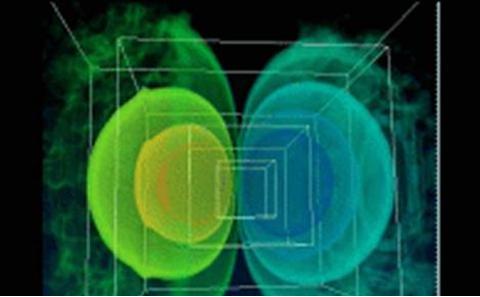Applied Seminar - Influence Maximization in the Voter Model, Dr Markus Brede (Southampton, ECS) Seminar

- Time:
- 12:00 - 13:00
- Date:
- 30 January 2018
- Venue:
- Ketley Room, Room 4001, Building 54, Mathematical Sciences, University of Southampton, Highfield Campus, SO17 1BJ
For more information regarding this seminar, please email Dr Philip Greulich at P.S.Greulich@southampton.ac.uk .
Event details
Influence maximization - the study of strategically influencing agents on social networks with an aim to align their opinions or choices with certain targets - has major applications ranging from advertising and marketing to the political campaign problem, preventing the spread of extreme opinions and radicalization, or limiting the spread of fake news. So far, most literature has considered this problem for scenarios of optimally arranged seeds that trigger cascades of opinion change, mostly in variants of the independent cascade model [1]. However, in this model opinions are considered fixed once adopted and thus the model is not suitable to account for scenarios of dynamically changing opinions. The voter model overcomes this limitation and recent results on opinion control in the stationary state have shown that optimal control on undirected networks should mostly focus on hub nodes in this case [2].
In this talk I will summarize some of my recent results on influence maximization, or optimal opinion control, for the two state voter model. In the first part of the talk I will explore the effects of noise in the voting dynamics on optimal control, showing that generally two well-separated regimes of low-noise and high-noise control exist. In second part of the talk I will focus on aspects of non-stationary control, exploring the role of time horizons of strategic influencers on optimal influence allocation strategies. Results in both parts of the talk will explain that hub control is not always optimal and demonstrate that it might be best to control low- or intermediate-degree nodes under some conditions.
Speaker information
Dr Markus Brede, University of Southampton, ECS. Most of Markus's research interests revolve around two themes: Understanding the relationship structure and function of sparsely coupled complex systems. Two areas in which I am particularly interested are: 1) Synchronization processes on networks and evolutionary games on structured populations, and 2) Socio-economic systems, in particular: Understanding the interplay between resource dynamics and resource exploitation (with applications to fisheries models or climate change) Non-equilibrium economic modelling and Modelling actor heterogeneity and diversity